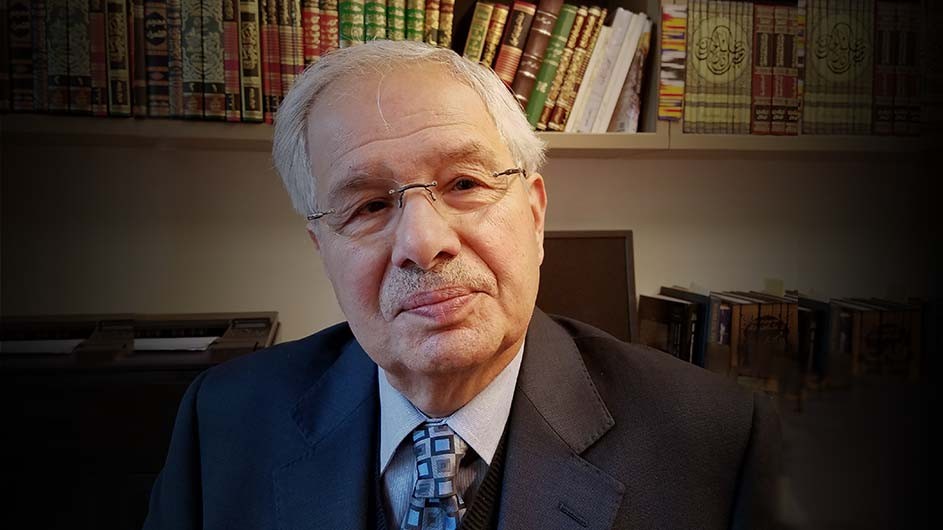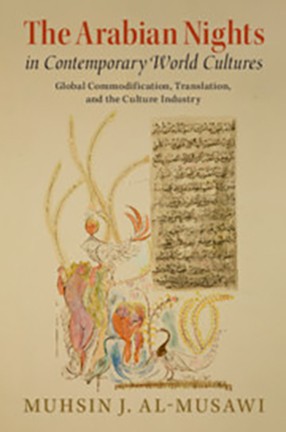A New Book Revisits the Tales of Aladdin, Sinbad the Sailor, Ali Baba, and Scheherezade
Professor Muhsin al-Musawi examines the enduring global appeal of the Arabian Nights.

The stories in the Thousand and One Nights, or the Arabian Nights, are familiar to many of us—from the tales of Aladdin, Sinbad the Sailor, and Ali Baba and his 40 thieves to the framing story of Scheherazade telling these tales to her homicidal husband, Shahrayar.
The Arabian Nights in Contemporary World Cultures, the new book by Professor Muhsin al-Musawi, who teaches in the Department of Middle Eastern, South Asian, and African Studies, offers a rich and wide-ranging analysis of the power of this collection of tales. Al-Musawi explores previously untouched areas like the decolonization of the Arabian Nights. He shows how the stories connected with people from all levels of society, and how the Arabian Nights have been translated, appropriated, authenticated, and abused over time.
Al-Musawi also examines how the Arabian Nights have drawn the attention of poets, artists, editors, musicians, filmmakers, political scientists, philosophers, and novelists like Michel Butor, James Joyce, and Marcel Proust.
Columbia News caught up with al-Musawi recently, and he discussed his new book, the enduring global appeal of the Arabian Nights, and why he is drawn to reading autobiographies these days.
Q. How did you come up with the idea for this book?
A. This is my third book in English on the Arabian Nights, and my sixth if I count my books in Arabic on Alf laylah wa Layla, as the Nights are called in Arabic. My interest in the topic involves comparative and Arabic studies, and literary theory. I argue that the Nights’ presence worldwide and popularity over time are not only an index of critical and popular taste, but that one also has to consider the contours of colonial enterprise and ventures. The Nights were often seen as representing an Orient, a falsehood that flourished, and was partly behind the stereotyping of peoples and nations.

Q. Why do the Arabian Nights, or the Thousand and One Nights, have such an enduring appeal across so many cultures and artistic genres?
A. The continuing popularity is twofold: It relates to the Nights being a treasure of tales, and also significantly involves the art of fiction as the source of a perennial human desire for life. Narrative equals life, and Scheherazade, the character who narrates the Arabian Nights, survives her ordeal through narrative. Her duplicates are many in this treasury of tales, including mendicants and barbers. For contemporary novelists, she stands for an ongoing narrative art, undying for being creative.
Q. What are your favorite tales from the collection, and why?
A. All the tales are fascinating, but I find The Porter and the Three Ladies of Baghdad to be consummate. Readers remember Aladdin and Sinbad better, but the cycle of tales about the porter and the three ladies is powerful. The Qamar al-Zaman tale is also magnificent, and I agree with the English novelist A.S. Byatt that it deserves more attention.
Q. What's on your reading list now?
A. My reading varies. Currently, I am reading autobiographies as I find them central to our understanding of cultures. I read Jabra Ibrahim Jabar’s The First Well for the third time, Fadwa Tuqan’s A Mountainous Journey for the second time, and The Autobiography of Malcolm X.
Q. What are you teaching at Columbia this fall?
A. I am teaching Arabic Prison Writing and Decolonizing the Arabian Nights.
Q. You're hosting a dinner party. Which three academics or scholars, dead or alive, would you invite, and why?
A. My guests would be Professor Suzanne Stetkevych, a specialist in classical Arabic poetry at Georgetown University; Avinoam Shalem, the Riggio Professor of the History of the Arts of Islam at Columbia; and Moroccan poet Muhammad Bennis. I know the three can make smooth, intelligent conversation because they share a number of things across their different disciplines.
Check out Books to learn more about publications by Columbia professors.